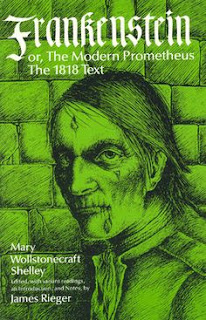Beloved

“Risky, thought Paul D, very risky. For a used-to-be-slave woman to love anything that much was dangerous, especially if it was her children she had settled on to love. The best thing, he knew, was to love just a little bit, so when they broke its back, or shoved it in a croaker sack, well, maybe you'd have a little love left over for the next one.” ― Toni Morrison, Beloved
An ominous beginning: "124 WAS SPITEFUL. Full of a baby's venom. The women in the house knew it and so did the children. For years each put up with the spite in his own way, but by 1873 Sethe and her daughter Denver were its only victims." The story of Sethe and that of Beloved provide some of the background necessary to begin to understand this beginning. It is a story of the pain of slavery and death in the family, but it is also a story of rebirth and love. It is a story dedicated to the "Sixty Million and more" who paid with their lives.
The narrative moves backward and forward in time, telling the story of Sethe and her extended family while also telling of their ancestors and how they survived, and how they did not survive. Place assumes an importance like a character: “Some things you forget. Other things you never do. But it's not. Places, places are still there. If a house burns down, it's gone, but the place--the picture of it--stays, and not just in my memory, but out there, in the world. What I remember is a picture floating around out there outside my head. I mean, even if I don't think if, even if I die, the picture of what I did, or knew, or saw is still out there. Right in the place where it happened.”
But one place, 124 Bluestone Road, haunts the novel and in turn is haunted by memories of dark deeds.
The story changed for this reader when, at the beginning of a chapter at about page fifty, Beloved appeared: "A fully dressed woman walked out of the water." Where did she come from? Was she a mere apparition? Probably not the latter, but from that moment on she becomes central to the story. She may be the ghost of a child who has suffered a violent death, and she haunts the house where her grandmother, mother, brothers, and sister live. The grandmother dies; the brothers disappear; the mother takes a lover; the sister grows up. The ghost grows up too, assumes a human form, and seduces and drives away the lover. Then she takes possession of the mother.
What was important for me was not these plot points, but the way the story was told. The poetry of Morrison's prose, the striking metaphors and shifting point of view; these and the way the story of the many who were lost in the past were brought forth in those who were living out the present time of the narrative. There were also the stories that were embedded in the narrative that became part of the world of Beloved and Sethe.
The sum of all of the narrative astonished me -- at the stunning cruelty of slavery, at the death-defying endurance of love, at the sharp beauty of the natural world. Morrison’s style in this book, as in her other novels, combines the magic of Afro-American idiom, the density of poetry, and the specificity of the plainest prose. I will put this novel beside my copy of Song of Solomon and return again and again to savor the sheer beauty of their being.









































